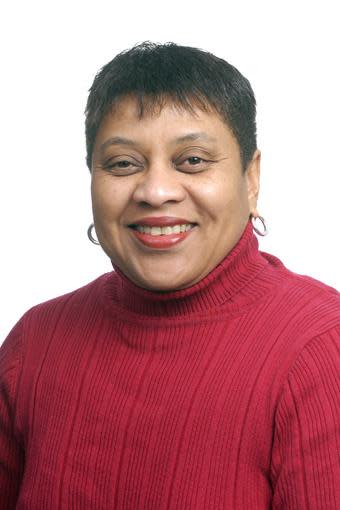Laymon Carter Sr. exemplified American resilience
- Oops!Something went wrong.Please try again later.
You probably didn't know Laymon Carter Sr.
He died on July 19.
A native of Red Lick, Mississippi, Carter left home when he was 16, part of the "Great Migration" during which millions of Black Americans left the South in search of a better opportunity.
He relocated to Northeast Ohio when he was in his 20s, found construction work in Akron and started a car wash with a friend, Joe Hatchett. For the next 50 years, Carter operated car washes, including the J&L Car Wash in Canton. He retired in 2016.

More Charita Goshay: Women like Canton's Sarah Matthews will help save us from ourselves
The American story is not just one of grand gestures and chest-beating heroics. It rests on the cumulative experiences of ordinary people who exemplify resilience; who forged their own destinies through hard, honest work.
The Book of Proverbs warns against our being enamored with wealth and power, but perhaps it is just human nature that we are more easily impressed by great and flashy fortunes and those who make them, rather than with ordinary people such as Carter, who give an honest day's work for an honest day's pay.
A billionaire riding atop of a rocket ship will always get press. A top-notch daycare center? Not so much.
A father of seven, Carter built a devoted customer base who patronized J&L Car Wash, where vehicles were cleaned by hand and with power washers.
"It was the busiest hand car wash in the city," said Carter's eldest son Laymon Jr. "He helped so many organizations here in Stark County. My dad sowed seeds. He was such a kind man. He employed every race of people, and homeless people. Sometimes, someone would come to work drunk and I'd want to fire them, but he wouldn't."
If you have an occasion to be in downtown Canton, you've probably seen Carter Jr. He's a delivery driver for UPS. Like his dad, he also has his own side business, Laymon's Power Wash.
Even if we aren't wealthy, we all leave something behind.
More: Charita Goshay: Belief in 'safe places' is being shattered bullet by bullet
Laymon Jr. said his father bequeathed to him a work ethic.
"My dad worked hard his whole life," he said. "He always worked two jobs, which is why I work two jobs."
Carter Jr., now a father himself, said his dad also believed in tough love.
"But I'm grateful," he said. "It helped to make me into the man I am today."
There's a lot of talk these days about "The Working Class." They're the demographic, the sweet spot, that the media and those running for office keep in their sights.
Political ads aren't aimed at the swells; they're crafted for people who punch a time clock and those whose businesses will never land on the cover of Fortune magazine.
Unfortunately, the popular definition of working class is often too narrow and too homogenous. Reporters descend upon small town diners to interview that same type of people they featured the last time they went in search of working class sentiments.
The media never seems to find its way to car washes, or laundromats, or the kitchens of restaurants, where people hold views and beliefs that are just as valid as those in the diners.
Dreamers, small business owners and entrepreneurs such as the Carters are the backbone, the only reason this country functions as well as it does. They deserve much more respect and attention than they're given.
Laymon Carter Sr. was laid to rest on Friday in Akron. He was 81.
"They don't make men like that anymore," his son said.
Charita M. Goshay is a Canton Repository staff writer and member of the editorial board. Reach her at 330-580-8313 or charita.goshay@cantonrep.com. On Twitter: @cgoshayREP
This article originally appeared on The Repository: Laymon Carter Sr. exemplified American resilience
